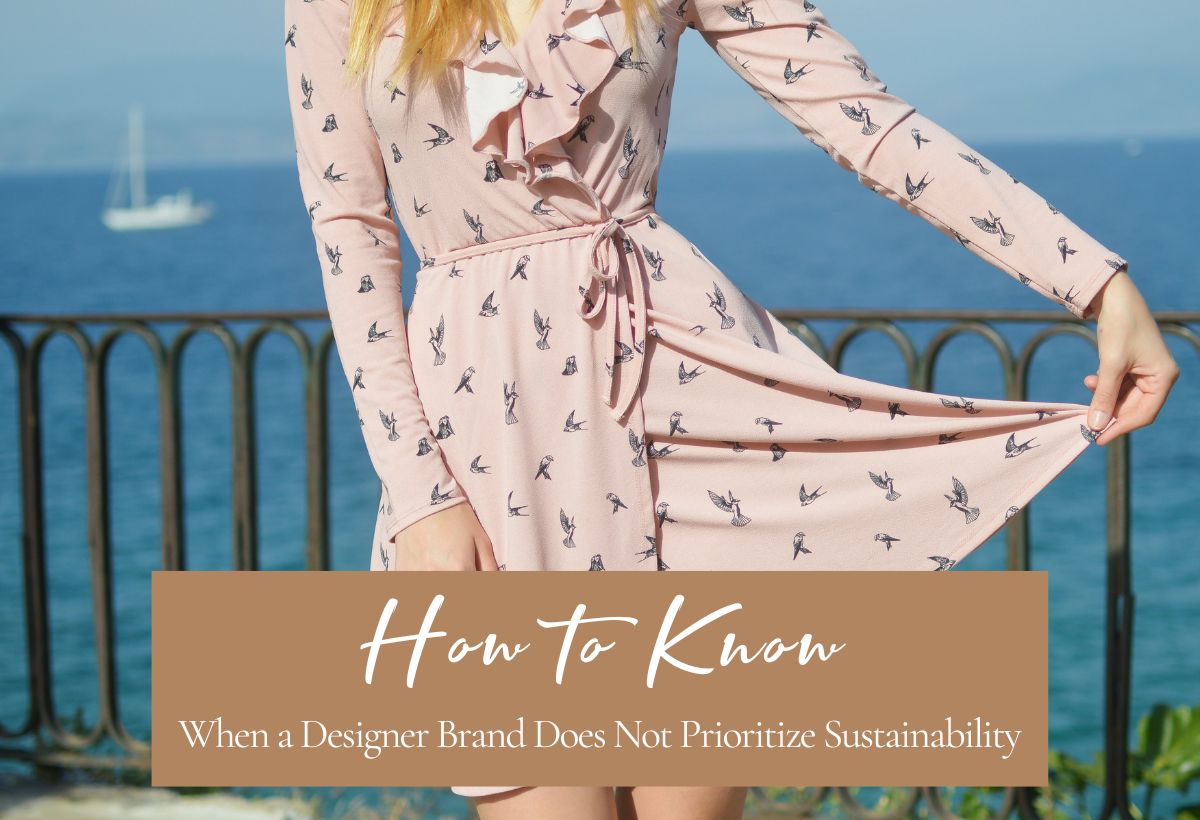
More and more shoppers are becoming mindful of sustainability. They’re looking for designers and clothing manufacturers who work hard to create garments with the environment in mind while ensuring minimal impact on the people producing them.
When you’re browsing clothing racks in a store or scrolling through listings online, identifying sustainably made garments is rarely easy. However, you might find it easier to rule out unsustainable options by looking for these signs below:
No Sustainability Practices
When you visit a designer women’s clothing retailer’s website like Dihsan, you can view garments from many different brands all in one place. After finding something you like, research the brand for their Code of Ethics or sustainability practices guidelines.
That information won’t be hard to find if the brand prioritizes sustainability. For example, Kering, the luxury goods company and owner of brands like Gucci, has a Code of Ethics. This code outlines their 2025 Sustainable Development strategy, aiming to reduce their CO2 emissions by 50% and reduce their environmental profit and loss account by 40%. If you can’t find any information about a brand or label’s sustainability, they may not prioritize this vital goal as much as others.
No Sustainable Materials
There’s a high chance that many of your favorite garments don’t contain 100% sustainable materials. That isn’t every clothing manufacturer’s goal, and it might not always be possible. However, many producers are doing their best to cut down on textiles with a high negative environmental impact, like polyester, vegan leather, and synthetic fibers.
If you’ve noticed that a designer’s entire line predominantly features unsustainable materials that represent rainforest destruction, the use of GMOs, high water and energy use, and non-biodegradability, consider shopping elsewhere. There are many low-impact fibers to choose from instead, such as:
- Recycled materials
- Organic cotton
- Linen
- Hemp
- Silk
- Materials labeled as ‘responsible’
No Recognized Certificates
Brands committed to environmentally friendly and ethical clothing production want their shoppers to know about it. They publish their certificates on their websites and in-store so you can make informed shopping decisions.
If you can’t see mention of any recognized certifications like Organic Textile Certification, Better Cotton Initiative, and Responsible Wool Standard, those brands likely don’t have such certificates. This might mean they haven’t met the requirements for obtaining them.
Poor Packaging Practices
Packaging is often unavoidable, whether you’re shopping for clothing online or in person. Shop assistants can provide you with a shopping bag for your purchases when you leave the store, and they often beautifully present anything purchased online for delivery to your door.
However, designer brands prioritizing sustainability put a great deal of effort into minimizing unnecessary waste. They make tags from sustainable materials and ensure that most product packaging is recyclable. Unfortunately, not all brands do. If you notice excessive packaging in the name of presentation, this can sometimes be a sign of an unsustainable brand unwilling to help us reduce our fashion environmental impact.
Many brands have a long way to go before calling themselves sustainable. However, it’s evident that some are more dedicated to the cause than others. If you’re thinking about shopping with a brand displaying these poor sustainability practices above, you might like to reconsider your purchase.
Comments are closed.